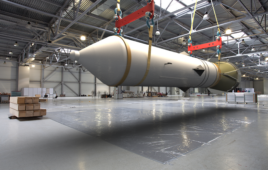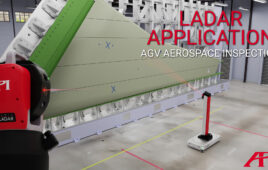WRIGHT-PATTERSON AIR FORCE BASE, Ohio (AFNS) — Officials at the Air Force Cyberspace Technical Center of Excellence here are conducting the first official Cyber 200 and 300 courses beginning Oct.12.
On Oct. 28, more than 100 students will graduate from the Air Force Institute of Technology’s newest educational courses designed to develop the Air Force’s cyber workforce.
Cyber 200 and 300 are professional development courses for cyberspace professionals as they transition to intermediate and higher-level responsibilities.
Specialists from the AFIT Center for Cyberspace Research conducted beta test classes of Cyber 200 and 300 courses in June and July. Thirty-nine students from various organizations including the U.S. Strategic Command, Air Force Space Command, 7th Intelligence Squadron, 23rd Information Operations Squadron, 57th Information Aggressor Squadron and the 315 Network Warfare Squadron provided feedback on these courses.
“The Air Force Cyberspace Technical Center of Excellence has done a tremendous job of putting these courses together,” said Lt. Col. Timothy Franz, a Cyber 300 student and the 57th Information Aggressor Squadron commander. “It was refreshing to discuss topics (including) doctrine, current ops, present threats, legal challenges, acquisitions and even current R&D/Academic efforts.”
Cyber 200 and 300 courses are designed for all cyberspace professionals including the entire 17D or Cyberspace Warfare Operator career field. The courses provide an understanding of the design, development and acquisition of cyberspace systems. They also explore cyber asset capabilities, limitations, vulnerabilities and employment in joint military operations. The courses aim to keep cyberspace professionals current and at the cutting-edge, keeping pace with the quickly changing technologies of the cyber domain.
“Hands down this is the best Air Force course I’ve taken in my career,” said Capt. David Gordon, a Cyber 200 student from USSTRATCOM. “It has sharpened my knowledge to see the ‘big picture.'” I now understand the technical part and can explain the ‘so what’ to any senior leader.
“My knowledge has been enhanced and eyes opened,” he said. “I can apply cyber to base operations; battlefield networks: ground, air, land, and maritime; homeland defense; and theater operations. Cyber begins where other domains end to achieve kinetic and non-kinetic affects. We have now moved in a new paradigm where cyber is the new spear.”
More information can be found on the AFIT Center for Cyberspace Research website.
Filed Under: Aerospace + defense




